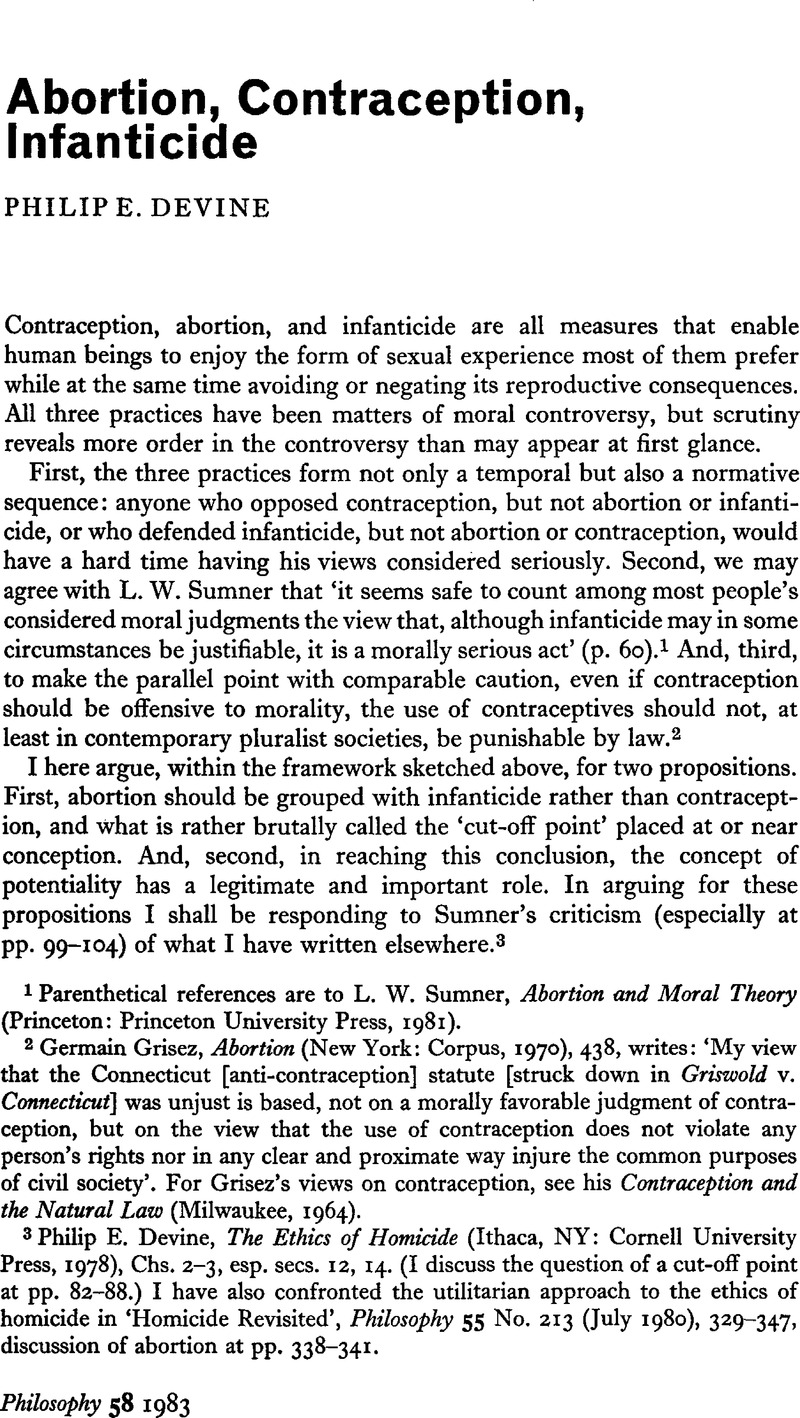Published online by Cambridge University Press: 30 January 2009

1 Parenthetical references are to L. W. Sumner, Abortion and Moral Theory (Princeton: Princeton University Press, 1981).
2 Germain Grisez, Abortion (New York: Corpus, 1970), 438, writes: ‘My view that the Connecticut [anti-contraception] statute [struck down in Griswold v. Connecticut] was unjust is based, not on a morally favorable judgment of contraception, but on the view that the use of contraception does not violate any person's rights nor in any clear and proximate way injure the common purposes of civil society’. For Grisez's views on contraception, see his Contraception and the Natural Law (Milwaukee, 1964).
3 Philip E. Devine, The Ethics of Homicide (Ithaca, NY: Cornell University Press, 1978), Chs. 2-3, esp. sees. 12, 14. (I discuss the question of a cut-off point at pp. 82-88.) I have also confronted the utilitarian approach to the ethics of homicide in ‘Homicide Revisited’, Philosophy 55 No. 213 (July 1980), 329-347, discussion of abortion at pp. 338-341.
4 I am indebted to Harold W. Baillie for emphasizing to me the importance of the concept of a hexis in Aristotle's outlook.
5 In ‘The Moral Basis of Vegetarianism’, Philosophy 53, No. 203 (October 1978), 481-505, and in my rejoinder to Bart Gruzalski, in Ethics & Animals, June 1981.
6 For a critique of mechanistic biology, see Charles Taylor, The Explanation of Behaviour (London: Routledge & Regan Paul, 1965), esp. Pt I.
7 I make both sorts of argument in The Ethics of Homicide.
8 University of Scranton